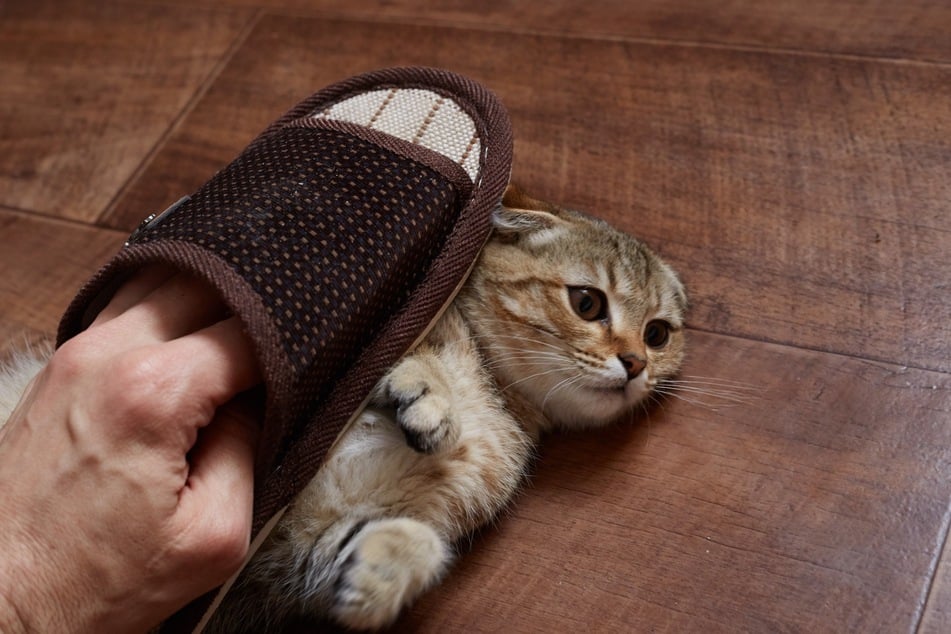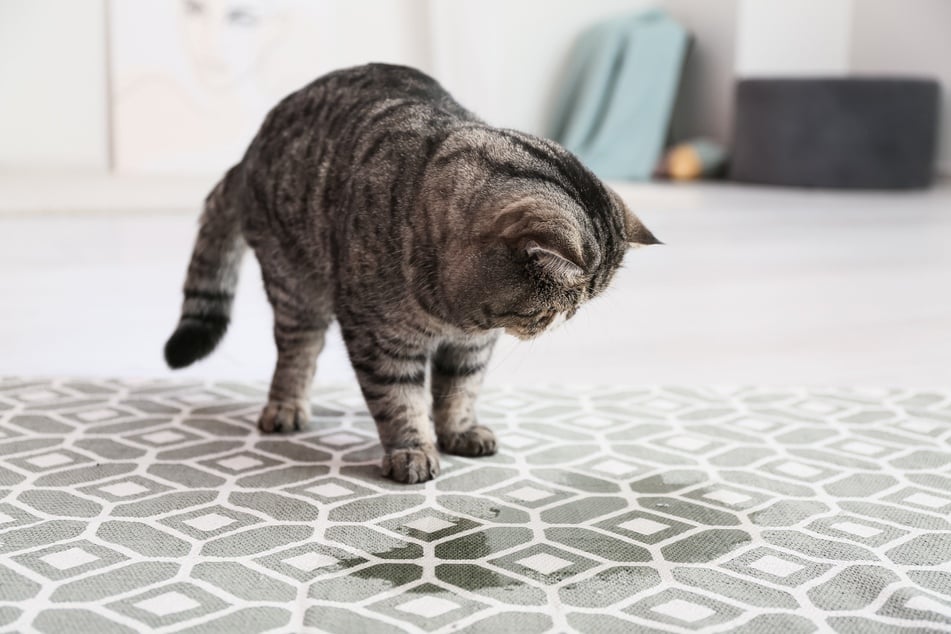How to discipline a cat: Stop bad cat behavior without punishment
You shouldn't be "punishing," scaring, hurting, or otherwise annoying your cat as a result of bad behavior. Instead, cat discipline is all about positive reinforcement and patience. Let's talk about it.

Most cat owners have decided to adopt their feline friends because they love animals and want to spend their life in the presence of these fluffy dudes. Still, cats need discipline in much the same way dogs need discipline, and it's a process to get your kitty properly adjusted.
In this cat guide, TAG24 will take a look at how to discipline a cat without using traditional methods of punishment. If you want to stop bad cat behavior, these steps are some of the most important you can learn.
Can you discipline a cat?
While cats are very sensitive creatures, and should never be subject to direct or physical punishment, they can be disciplined when necessary. The form of discipline you utilize should be based on the idea that mutual love, affection, care, respect, and trust are the foundation of your relationship.
If your cat misbehaves, as it is liable to do from time to time, it is better to address the problem through constructive means rather than allowing yourself to get vocally or physically angry. Physical manifestations of punishment are in many cases akin to abuse and animal cruelty, so it's a must that all cat owners learn how to be constructive critics.
Instead of the discipline coming from fear or anger, it should come from a desire (on your cat's part) to do the right thing and to make you happy. It's about positive reinforcement, not negative punishment.
How to discipline a cat
While you don't have to put up with bad behavior from your kitty, you also can't respond by exhibiting bad behavior yourself. You're smarter than that, so take a moment to think and consider these five ways to discipline a cat without the use of physical punishment.
Tip 1: Give your cat a lot of love, affection, and attention.
A cat that gets enough love and attention from its owner is less nervous and irritable. If you make sure your kitten is content and happy, it will scratch your furniture less and will make less of a mess. Instead of being naughty, your cat will prefer to be loving and smoochy instead.
Tip 2: Put yourself in your cat's shoes.
When your cat does something that bothers you, it's important to remember that it has done whatever it might be for a reason. Make sure to empathize with your cat and provide it with all the various things that it needs.
Tip 3: Reinforce good behavior with rewards.
If your cat shows a behavior you believe to be favorable, it's time to offer a reward. The more often you reward your pet, the more often it will display the desired behavior. This method is called "positive reinforcement." The cat will relate the positive behavior with the reward and will be incentivized to be good.
Tip 4: Use clicker training to minimize bad behavior.
Well-implemented clicker training is perfect for minimizing unwanted behavior. Check out our guide to learn how to clicker train your cat.
Tip 5: Create conditions that make bad behavior difficult.
Does your cat keep peeing in your shoes? Then put your shoes in the closet. Does it keep scratching the couch or your wallpaper? Put up scratch guides. Find creative solutions to these various problems so your cat will be less likely to behave badly.
The word of the day is "positive." Always be positive, use positive reinforcement, and create a positive environment that induces positive behavior. It really is that simple!

How to discipline a cat for peeing outside the litter box
If your cat keeps peeing outside its litter box, it might be time to revisit your toilet training exercises. Start all over again, like you've never done this before, and implement practical strategies to make it as easy as possible for your cat to start going in its tray once again. Don't get angry, frustrated, or aggressive, as this will only end up being counterproductive.
Here are a few tips and tricks for disciplining a cat that's not using its litter box:
- Always clean up the mess thoroughly, but don't throw it in the bin. Instead, transfer the mess into the litter box.
- Make sure there are no territorial issues going on with other cats or animals in the household.
- Ensure there are plenty of litter boxes all over the house and, if necessary, get more.
- Guarantee the litter box is always kept clean.
In the case that your cat has been taught repeatedly, and all alternative strategies exhausted, it's time for a vet visit.
How to discipline a cat for attacking or biting

If your cat keeps biting or attacking you, it is just as much about being disciplined in yourself as it is about disciplining your kitty. Your cat needs to be taught that it is wrong, and also needs to understand that you are the head of the household. There are a few things you can do to improve this behavior.
Here's how to discipline an attacking or biting cat and train out the behavior:
- Make sure you are never using your hands as toys when you play with the kitty. Instead, use a stick, your shoes, or a genuine toy.
- If your cat bites you, push your hand forwards towards the cat and don't pull. This will startle the cat, make it stop, and make it respect you for being dominant.
- Make sure there is plenty around the house for your cat to bite or scratch. That means toys, towers, and more.
- Give your cat the silent treatment when it has done wrong. Simply turn away and ignore it; don't give it the satisfaction of an amusing reaction.
- Make sure everyone in the house is on the same page as to how to react so that there is consistency in your message when it comes to biting, scratching, and any other painful behaviors.
Again, if your cat is violent to the point of being dangerous or a real problem, the veterinarian is your best and, frankly, only option.
Disciplining cats and punishing cats are different things
Punishment through physical means, or by fright, is very different from proper discipline. What you want to do is provide your cat with plenty of positive reinforcement, and an incentive to behave well rather than a disincentive to behave badly. You don't want to be cruel, and you want to develop a good relationship with your fluffy friend.
Make sure that you've developed a few clear methods of discipline to reduce feline violence and create a respectful but loving relationship between yourself and your kitty. Trust us, it's always better to discipline than it is to punish.
Cover photo: 123RF/Gadzik




